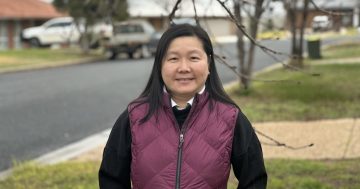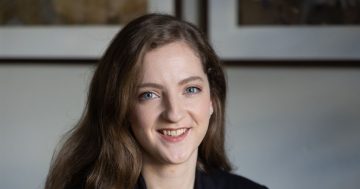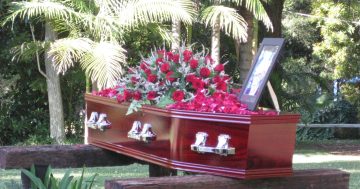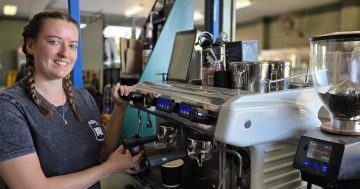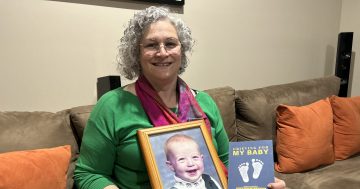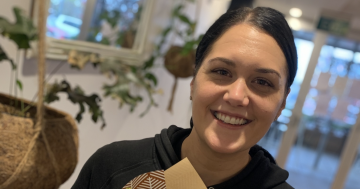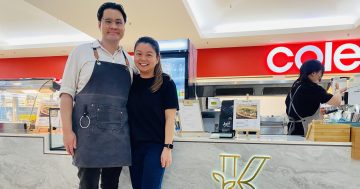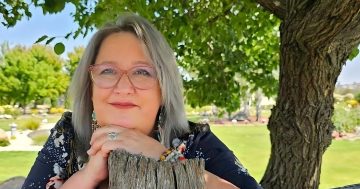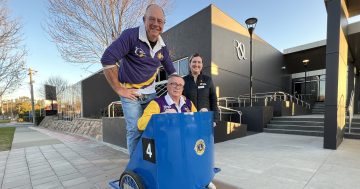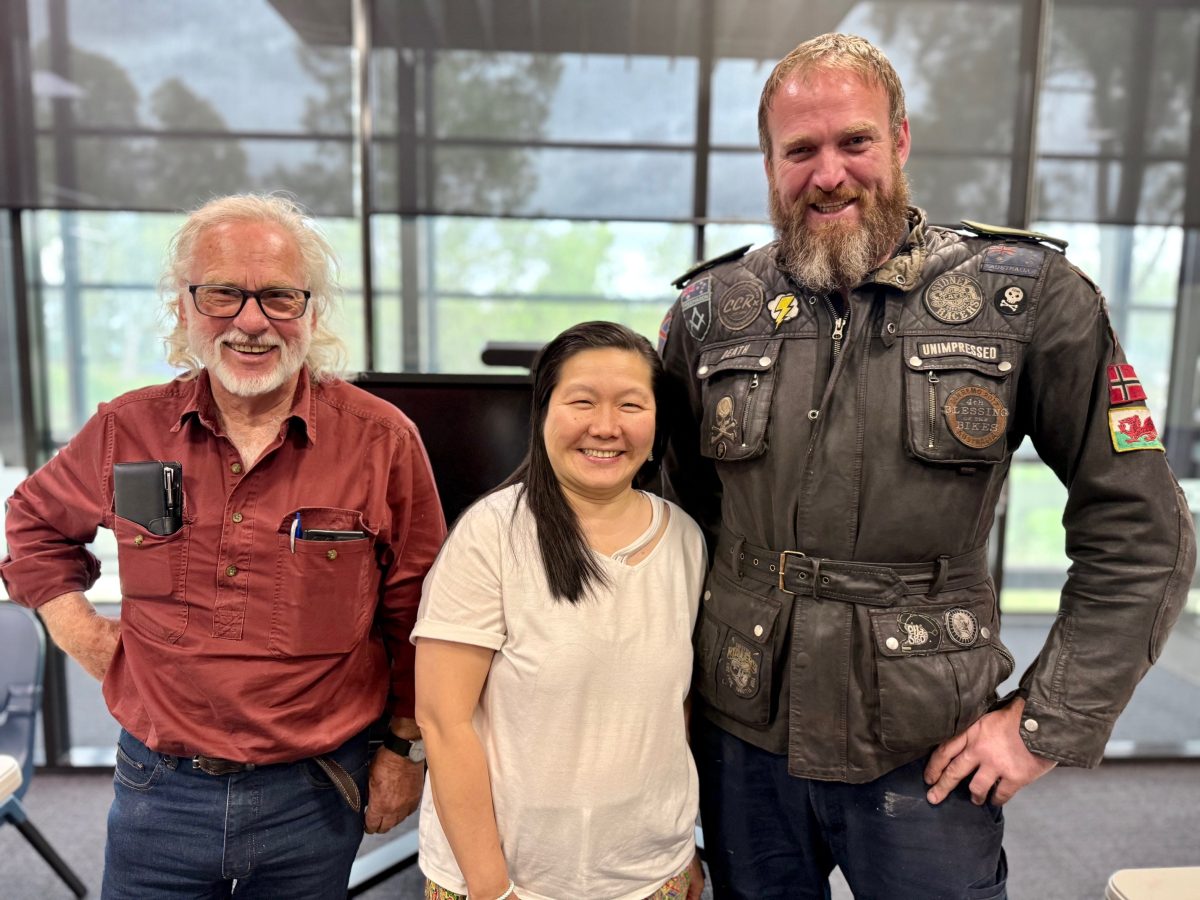
Laughter, insight and meaning at the Death Cafe. From left: Don, organiser Peir Woon, and David. Photo: Marguerite McKinnon.
The invitation said BYO plate, so what do you bring to a Death Cafe? The biggest and best box of chocolates one can find, because some say good chocolate is ‘to die for’.
Humour is an icebreaker.
A Death Cafe is a discussion group where people can talk about death, dying, and related topics in a non-judgmental environment.
The concept arose from the sad reality that people don’t like talking about death until it’s too late.
Those who turned up to a Death Cafe organised at Wagga Wagga City Library last weekend were rewarded with incredible stories of survival from people who have faced death, and won trauma’s silver lining – a more developed awareness of life, death and meaning than most.
As the chocolates were passed around, one of the ‘cafe crowd’, Don, casually dropped a bombshell.
“So I’ve got cancer,” said Don, who chose not to divulge his surname.
Immediately others said they were sorry to hear it.
“No, don’t be sorry about it. You know, we all die, and when you’re in that situation or whatever, you just deal with it,” Don said.
“I think that the appropriate thing to do is to normalise it.
“A few years ago, I lost family members. When I was about seven, my best mate was burned to death in a fire. When I was 11, I lived with my grandparents, and they were killed in a big car accident along with my aunt. So right through my childhood there was a lot of death and tragedy. Plus the family is full of cancer.
“But my response as a kid was, I just kept talking to them (after their deaths.) I absolutely felt their presence, and it was nostalgic grief over unresolved grief, which allowed me to rebuild the relationship through a feeling of connection and love.
“Now I am doing everything I can to stay fit and be as functional and competent for as long as I can.”
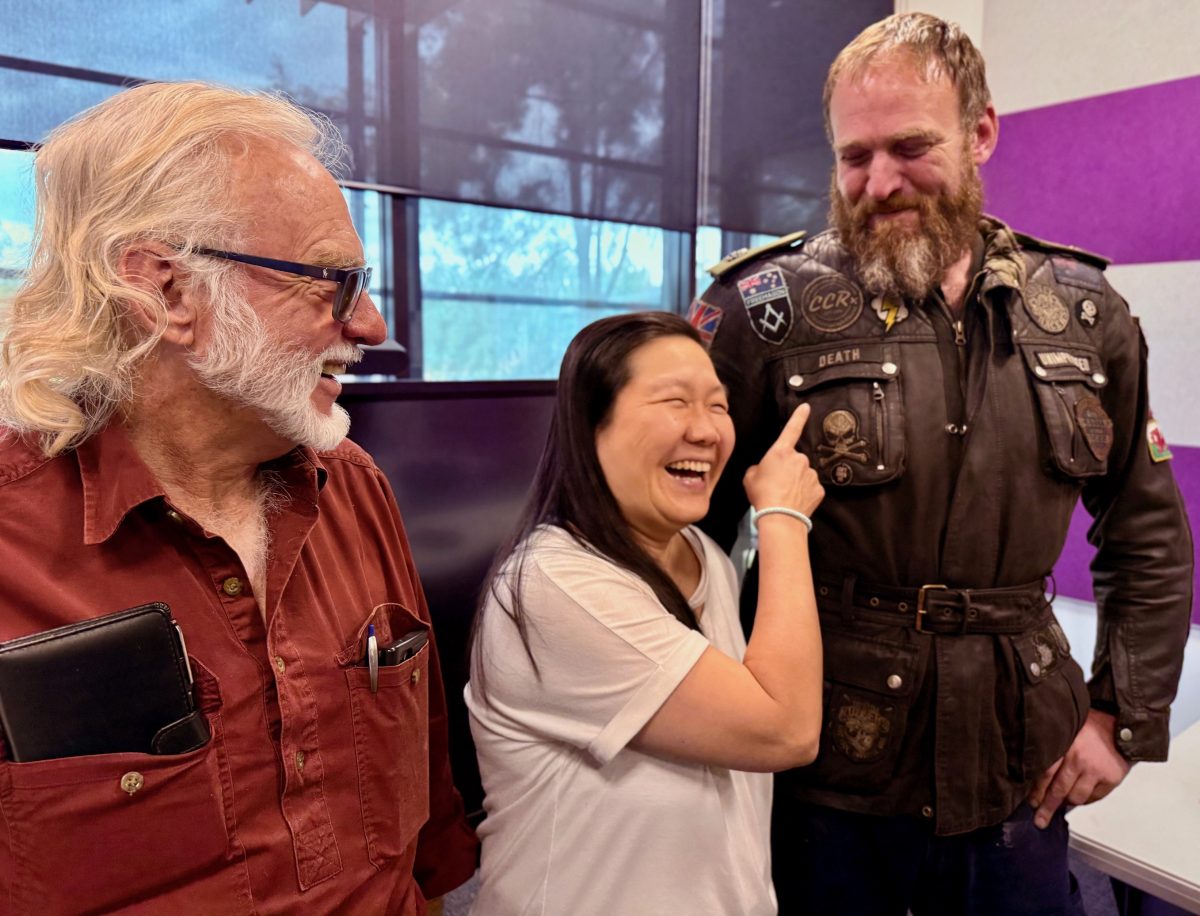
David’s bike jacket’s “Death” and “Unimpressed” embroidered patches caused some mirth at the Death Cafe at Wagga City Library. From left: Don, Peir Woon and David. Photo: Marguerite McKinnon.
David was 29 and married for just two weeks when he was diagnosed with a rare form of brain cancer. He was told he had only three months, at best, to live.
“I was working the day I was diagnosed and went straight to hospital. I didn’t pass go. I was released briefly from hospital to say goodbye to my family because it was Christmas Day, so now every Christmas is quite an interesting and emotional experience for me,” David said.
“That was 12 years ago, so now I think death is a bit of freaking joke. It’s not coming. I have to keep living with this thing.
“I didn’t know who my family was. I didn’t know who my wife was. I had to learn to walk and talk and speak, and she sort of hugged me, but it just felt wrong. I didn’t like being touched. It would have been absolutely hell for her.
“We split up. We didn’t keep in touch. I hope she’s doing well, that’s all.”
David was a carpenter before the surgery. After surgery, he lost his trade licence, his car licence, “everything”.
Now, surprisingly, David is not only employed, but runs his own business.
“I design electric power systems to convert farm machinery from diesel to electric. I got to understand electronics for some f***ing reason,” he said.
David remarried and has been going strong with his new wife for eight years.
“My woman, this is all she’s ever known (about my brain injury), but even she is not as comfortable to talk about death as I am, so coming to the Death Cafe has been definitely worthwhile as I can be more myself,” David said.
Organiser Peir Woon said the Death Cafe was a group-directed discussion with no agenda, objectives or themes. Rather, it was a chance for people, often strangers, to gather and eat cake (and chocolate) and discuss death. Neither a grief support group nor counselling session, the Death Cafe was designed to increase awareness of death with the view to help people make the most of their finite lives.
“Death is a very natural part of life,” Peir said.
“It’s not a failure or a bad thing. We can prepare for it, much like how expecting parents prepare for a newborn, and when we do we should ask the question: what matters most to us will help us make the best choices?
“The author Dr Lani Leary who wrote No one has to Die Alone said that if we are prepared well, we can turn loss into love, and grief into gratitude. This sits with me,” she said.
“During our conversations at the Death Cafe we always start, middle, or end with laughter. We want to celebrate life and the people in it.”
Another five Death Cafes are being planned in 2026 starting in February at Wagga City Library. BYO chocolates is optional.







